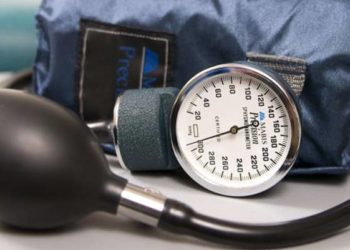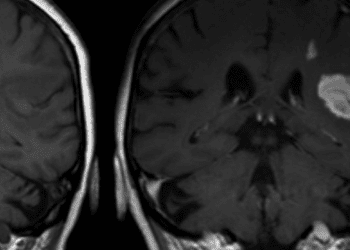Levetiracetam not clinically effective nor cost-effective compared to valproate for newly diagnosed generalized or unclassified epilepsy
1. 12-month remission was superior with valproate than with levetiracetam.
2. Compared to levetiracetam, patients in the valproate group reported fewer adverse reactions (42% vs. 37%) and increased cost-effectiveness.
Evidence Rating Level: 1 (Excellent)
Study Rundown: Epilepsy is a common debilitating neurological condition with lifetime incidence of 5%. Although valproate is currently used as first-line treatment for newly diagnosed generalized or unclassified epilepsy, evidence regarding its efficacy is mixed. Levetiracetam has been increasingly used for women of child-bearing age due to concerns of teratogenicity with valproate. However, there is limited evidence surrounding the effectiveness of levetiracetam monotherapy in patients with generalized or unclassified epilepsy. This randomized controlled trial aimed to compare the long-term clinical effectiveness and cost-effectiveness of levetiracetam with valproate for patients with generalized or unclassified epilepsy. The primary outcome was time to 12-month remission from seizures, while secondary outcomes included time to 24-month remission, time to treatment failure, and adverse reactions (i.e., impact on quality of life and quality-adjusted life years). According to results, levetiracetam did not meet the non-inferiority criteria for 12-month remission for generalized and unclassified epilepsy compared to valproate. Compared to levetiracetam, valproate ranked higher in terms of cost-effectiveness and less adverse outcomes. This study was limited by its relatively young population given that current proponents of levetiracetam over valproate revolve around concerns of teratogenicity in women of child-bearing age. Nonetheless, it provided valuable insight into the clinical effectiveness and cost-effectiveness of valproate and levetiracetam.
Click to read the study in The Lancet
Relevant Reading: Randomized Trial of Three Anticonvulsant Medications for Status Epilepticus
In-depth [randomized controlled trial]: Between Apr 30, 2013, and Aug 2, 2016, 520 patients were recruited from 69 centers in the UK. Included patients were ≥ 5 years old, were diagnosed with generalized or unclassified epilepsy, and had never been treated with an anti-seizure medication. Those experiencing provoked or acute symptomatic seizures were excluded. Altogether, 509 patients (255 in the valproate group and 254 in the levetiracetam group) were included in the per-protocol analysis.
Median patient age was 13.9 years (interquartile range [IQR] 8.9-19.7), and the majority of them (65%) were male. 76% (n=397) patients had generalized epilepsy (i.e., idiopathic generalized, childhood absence, juvenile absence, and juvenile myoclonic epilepsy), while 24% (n=123) had unclassified epilepsy. Patients were followed for two years after randomization. Levetiracetam did not meet the non-inferiority criteria (defined as hazard ratio [HR] > 1.314) in the intention-to-treat (ITT) analysis for time to 12-month remission (HR 1.19, 95% confidence interval [CI] 0.96-1.47). Per-protocol analysis showed that 12-month remission was superior with valproate than with levetiracetam. With regard to key secondary outcomes, valproate was shown to be superior in terms of time to 24-month remission (HR 1.43, 95% CI 1.06-1.92), time to first seizure (HR 0.82, 95% CI 0.67-1.00), and time to treatment failure for any reason (HR 0.65, 95% CI 0.50-0.83). Adverse reactions were reported by 37% (n=96) of patients in the valproate group and 42% (n=105) of patients in the levetiracetam group. Moreover, valproate was more cost-effective than levetiracetam, with an incremental net health benefit of -0.040 (95% central range -0.175 to 0.037). Overall, compared to valproate, levetiracetam was found to be neither clinically effective nor cost-effective in this study.
Image: PD
©2021 2 Minute Medicine, Inc. All rights reserved. No works may be reproduced without expressed written consent from 2 Minute Medicine, Inc. Inquire about licensing here. No article should be construed as medical advice and is not intended as such by the authors or by 2 Minute Medicine, Inc.







